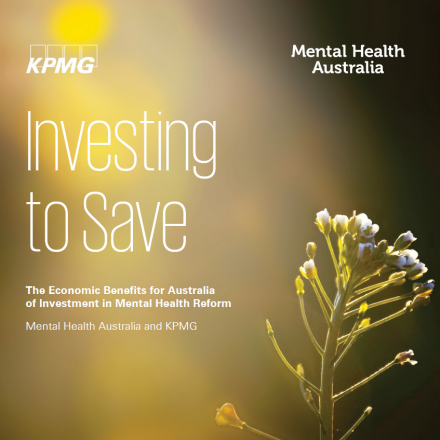Pharmacists’ role in mental health
 |
Article by Grant Kardachi
|
 The role pharmacists play in supporting patients to manage mental health issues is underpinned by the accessibility and availability of pharmacists.
The role pharmacists play in supporting patients to manage mental health issues is underpinned by the accessibility and availability of pharmacists.
Pharmacists are the most accessible of all healthcare professionals and are second only to nurses in the trust consumers have in them.
The result is that many pharmacists meet and talk to people with mental health issues on a regular basis and are well placed to help them and refer them to other health professionals when appropriate.
To highlight the roles and responsibilities of pharmacists in mental health, the Pharmaceutical Society of Australia (PSA) – in partnership with mental health consumers, carers and care coordinators, mental health policy and practice experts, and health professionals – has released a Mental Health Framework which highlights and promotes the expertise of pharmacists and the roles they undertake as partners in mental health care.
The framework is intended to be used to articulate current - and explore future - pharmacist roles as partners to enhance mental health care service delivery to Australian consumers and carers.
This framework can be used to engage with a variety of audiences including consumers, carers, mental health care organisations, health care practitioners and governments to promote the role of the pharmacist as a partner in the delivery of mental health care.
While pharmacists recognise that medicines are not necessarily the primary or sole treatment option for mental illnesses, the 31.1 million mental health-related prescriptions in Australia in 2010-11, comprising 11 per cent of all medicines subsidised under the Pharmaceutical Benefits Scheme, reflect that they are a significant modality of treatment. Of these, 86 per cent of medicines were prescribed by general practitioners rather than psychiatrists. These figures emphasise the need and opportunity for pharmacist involvement in mental health care and the importance of primary care in the management of mental illness.
Consumers with a mental illness commonly have multiple mental illness co-morbidities. They also have significantly poorer physical health than the general population. Pharmacists may see consumers with a mental health condition more regularly than any other health professional and have a unique opportunity to provide support to consumers in managing physical co-morbidities.
The framework focuses on how pharmacists’ skills and experience can be used to improve quality use of medicines for consumers with a mental illness.
Pharmacists have a strong primary healthcare role and, due to their accessibility, are often the first health professional contacted by a consumer with a health concern.
Pharmacists are frequently consulted for advice on medications and their frequent contact with mental health consumers and carers means they are ideally placed to play a greater role in supporting consumers to manage their mental illness.
The development of the Mental Health Framework was a collegiate effort and PSA acknowledges the generous and collaborative contributions by individual experts and nominees of the following organisations: Australian College of Mental Health Nurses; Australian General Practice Network; Australian Psychological Society; Mental Health Council of Australia; Pharmaceutical Society of Australia; Pharmacy Board of Australia; The Royal Australian and New Zealand College of Psychiatrists; The Pharmacy Guild of Australia; and The Society of Hospital Pharmacists of Australia.
The Mental Health Framework can be accessed on the PSA website at http://www.psa.org.au/policies/mental-health-care-framework
__________
Do you have a comment on this story? Join the conversation on Twitter @TheMHCA




